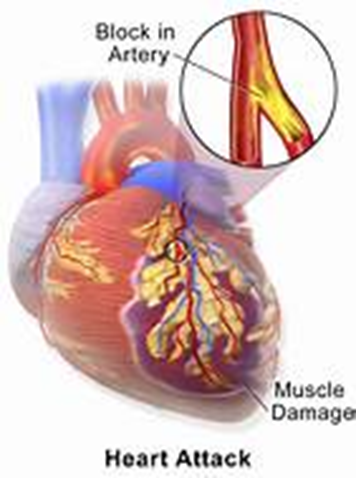A nurse is obtaining a health history for a client with chronic pancreatitis. Which of the following indicates the primary cause of the client's condition?
Weight gain
Use of alcohol
Abdominal pain relieved with food or antacids
Exposure to occupational chemicals
The Correct Answer is B
Choice A reason: Weight gain is not typically a direct cause of chronic pancreatitis. While obesity can be a risk factor for developing pancreatitis, it is not considered a primary cause.
Choice B reason: The use of alcohol is the most common cause of chronic pancreatitis. Long-term alcohol misuse can lead to the development of chronic pancreatitis, accounting for about 70% of cases³.
Choice C reason: Abdominal pain that is relieved with food or antacids is more indicative of conditions like peptic ulcers rather than chronic pancreatitis.
Choice D reason:Exposure to occupational chemicals has not been established as a primary cause of chronic pancreatitis. While certain toxins can affect the pancreas, they are not a common cause of chronic pancreatitis.
Nursing Test Bank
Naxlex Comprehensive Predictor Exams
Related Questions
Correct Answer is C
Explanation
Choice A reason: Myocardial infarction (MI) is not limited to occurrences with exertion. While stable angina typically occurs during physical activity or emotional stress, MI can happen at any time, even at rest. The underlying cause of an MI is the complete blockage of blood supply to a part of the heart muscle, usually due to a blood clot in a coronary artery. This blockage can lead to the death of heart muscle tissue, a condition that requires immediate medical attention.
Choice B reason: Stable angina does not typically last for more than 30 minutes. It is characterized by chest pain or discomfort that occurs predictably with exertion or emotional stress and is relieved within minutes by rest or nitroglycerin. In contrast, the pain from an MI is more prolonged and severe, and it is not relieved by rest or nitroglycerin. If chest discomfort lasts longer than 15 minutes and is not alleviated by rest or nitroglycerin, it is a warning sign that the individual may be experiencing an MI.
Choice C reason: This is the distinguishing feature between stable angina and an MI. Stable angina is usually relieved within 3-5 minutes by rest or nitroglycerin, which helps to dilate the coronary arteries and improve blood flow to the heart muscle. Nitroglycerin is ineffective in relieving the symptoms of an MI because the problem is not just reduced blood flow but a complete blockage that nitroglycerin cannot overcome.
Choice D reason: The pain associated with an MI typically lasts for more than 15 minutes and can be quite severe. Unlike stable angina, the pain of an MI is not relieved by rest or nitroglycerin. The duration and severity of the pain, along with other symptoms such as shortness of breath, sweating, nausea, or lightheadedness, help differentiate an MI from stable angina.

Correct Answer is ["1.2"]
Explanation
- Step 1: Identify the child's weight in pounds. The child weighs 33 lbs.
- Step 2: Convert the child's weight from pounds to kilograms. We know that 1 kg = 2.2 lbs. So, 33 lbs = 33 ÷ 2.2 kg. Calculating the division gives us approximately 15 kg.
- Step 3: Identify the prescribed dose in mcg/kg/day. The child is scheduled to receive 8 mcg/kg/day of digoxin, divided equally every 12 hours.
- Step 4: Calculate the total daily dose in mcg. We can do this by multiplying the child's weight in kg by the prescribed dose in mcg/kg:
- Total daily dose = 8 mcg/kg/day × 15 kg.
- Calculating the multiplication gives us: Total daily dose = 120 mcg/day.
- Step 5: Since the dose is divided equally every 12 hours, we divide the total daily dose by 2 to get the dose per administration:
- Dose per administration = Total daily dose ÷ 2.
- Dose per administration = 120 mcg ÷ 2.
- Calculating the division gives us: Dose per administration = 60 mcg.
- Step 6: Identify the concentration of the available solution. The available solution contains 0.05 mg/mL of digoxin. Convert this to mcg/mL for consistency with the dose per administration. We know that 1 mg = 1000 mcg. So, 0.05 mg = 0.05 × 1000 mcg = 50 mcg/mL.
- Step 7: Calculate the volume of solution needed to deliver the required dose. We can set up a proportion to solve for this:
- 50 mcg is to 1 mL as 60 mcg is to X mL.
- In other words, 50 mcg : 1 mL = 60 mcg : X mL.
- Step 8: Solve for X using cross-multiplication and division:
- Cross-multiplication gives us: 50 mcg × X mL = 60 mcg × 1 mL.
- Simplifying this gives us: 50X = 60.
- Dividing both sides by 50 gives us: X = 60 ÷ 50.
- Calculating the division gives us: X = 1.2.
Administer 1.2 mL of the digoxin elixir per dose.
Whether you are a student looking to ace your exams or a practicing nurse seeking to enhance your expertise , our nursing education contents will empower you with the confidence and competence to make a difference in the lives of patients and become a respected leader in the healthcare field.
Visit Naxlex, invest in your future and unlock endless possibilities with our unparalleled nursing education contents today
Report Wrong Answer on the Current Question
Do you disagree with the answer? If yes, what is your expected answer? Explain.
Kindly be descriptive with the issue you are facing.
